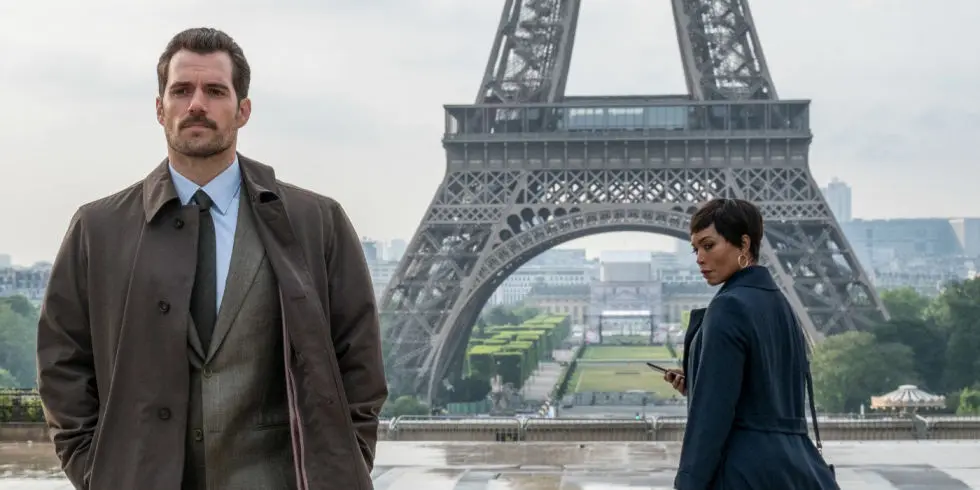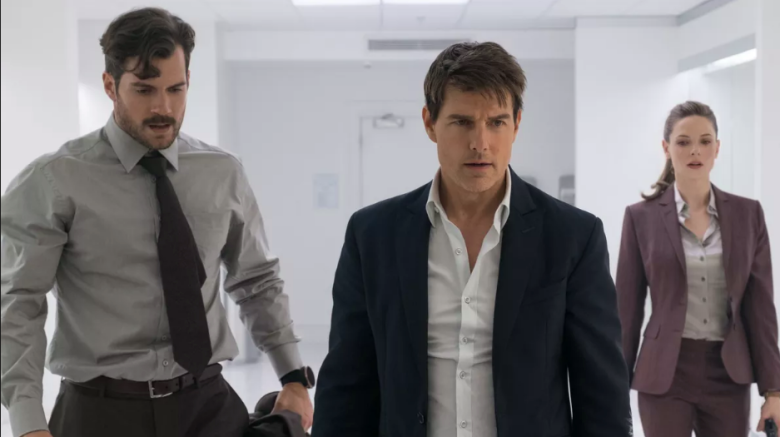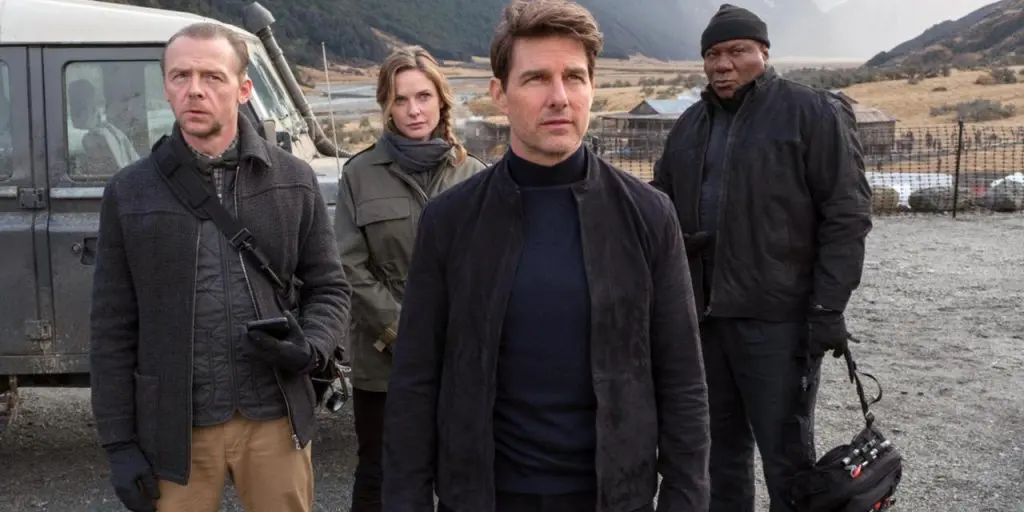Summary
A modern masterpiece of action cinema, Mission: Impossible – Fallout is one of the finest films of the year.
Tom Cruise is running. He always is. For at least half of Mission: Impossible – Fallout, the sixth film in the franchise, he’s running on a broken ankle. Nobody notices, least of all Tom Cruise. So, he keeps running. He runs through the streets of Paris and across the rooftops of London and through the fields of Kashmir. His arms pump. His legs blur. Tom Cruise might run forever.
The aura of Tom Cruise as an unflappable, unstoppable pop-cultural icon has radiated from Ethan Hunt, the omnipotent secret agent he plays in these movies, since at least the third one. But he hasn’t ever been as radiant as he is in Mission: Impossible – Fallout, which is the best film in the series, one of the best of the year, and the finest action extravaganza since George Miller’s Mad Max: Fury Road. It is a masterpiece, and we are unworthy of it.
That’s high praise, especially coming from me; out of the hundreds of reviews I’ve written for this site over the last year, I’ve deployed the coveted five-star rating only four times. If I could, I’d give this film six. I sit here now trying to fathom how this instalment could possibly be topped, and it occurs to me that such a thing surely isn’t possible. Then it occurs to me that I thought the exact same thing about Mission: Impossible – Rogue Nation. This is a series about defying expectations. Somehow, the longer it runs, the better it gets.

Mission: Impossible – Fallout, like Rogue Nation, is written and directed by Christopher McQuarrie, who is now the only filmmaker to have helmed two of these things (the first four were directed, somewhat incredibly, by Brian de Palma, John Woo, J.J. Abrams and Brad Bird.) He brings with him into this second offering most of the same creative team, the characters he introduced, and several chunks of the last film’s plot, making Fallout the first true sequel in a franchise that has reliably rebooted between instalments.
As such, Alan Hunley (Alec Baldwin) is now the Secretary of the Impossible Missions Force, or IMF, while British agent Ilsa Faust (Rebecca Ferguson) has been instructed to terminate the dastardly Solomon Lane (Sean Harris), who has remained in the custody of various interested governments for the two years that have elapsed between films. But this is all secondary, or at least tangential, to a new plot involving the sale of plutonium to anarchist terrorists who call themselves the Apostles – a plot complicated when Ethan allows the nuclear material to fall into bad guy hands in order to save his long-time friend Luther Stickell (Ving Rhames, who, alongside Cruise, is the only figure linking all six Mission: Impossible films together.)
McQuarrie’s screenplay doesn’t supply much reason to care about or understand any of this, although you inevitably will, as it so capably builds on the foundations laid by the previous film and repurposes the standard Mission: Impossible iconography to great effect. There’s an immediate pleasure in Hunt’s tech-whizz pal Benji Dunn (Simon Pegg) finally donning one of the series’ magic face masks (there’s some top-notch mask business in Fallout); the passing-of-the-torch moment between Ilsa and Michelle Monaghan’s briefly-returning Mrs. Ethan Hunt works because of the third and fifth films; Hunley being dogged by Angela Bassett as the new CIA Director is a reversal of his role in Rogue Nation; and Henry Cavill is a riot as Bassett’s top agent, August Walker, who operates as Hunt’s physical and moral opposite.

It’s bold of Mission: Impossible – Fallout to humanise the perennially-inhuman Cruise by constantly having someone nearby who makes him seem tiny and inconsequential. Of course Fallout functions in much the same way as all of these films have, which is to say by allowing Ethan to wing it and having the other characters gawp at his unimpeachable enthusiasm in the face of ostensibly impossible odds, but never before have the films had him defer physically, or challenged his staunch moralistic dogma in the way this one does. The entire plot is kick-started by his “no-one left behind” attitude being the exact wrong decision to make for the greater good, and from there it continues to beat, bash and bloody him until he is, quite literally, reduced to tears of guilt.
Whether or not Hunt succeeds by the end is mostly irrelevant. It isn’t even a spoiler to say that he does – all five of his previous impossible missions have proved quite possible, so it’s not unreasonable to have had a good feeling about this one. But for the first time we’re prompted to ask what the cost of success is for a man like Ethan; and, for that matter, for a man like Tom Cruise. There’s absolutely no reason for a rich 56-year-old man to be performing HALO jumps through thunderstorms and snapping his ankle during between-building leaps. To suggest it’s an ego-booster is too easy. Everything about Tom Cruise’s career suggests that he really is this talented, this enthusiastic, this determined. And that’s an even scarier thought. The price he pays for his success is his own physical wellbeing, and the reality that eventually, impossibly, he’ll be surpassed by a younger, fitter, probably bigger star, perhaps one not entirely unlike Henry Cavill. Mission: Impossible – Fallout acknowledges that Cruise’s body and reputation can’t possibly hold up forever; that eventually, he’ll be gone, and someone will take his place.
Tom Cruise is running. He always is. In Mission: Impossible – Fallout, Cruise chases his quarry through, over and between the landmarks of London, stopping occasionally to strike heroic poses against the skyline. His arms pump. His legs blur. Doesn’t matter who he’s chasing. In the end, he doesn’t catch him. Even Tom Cruise can’t run forever.




